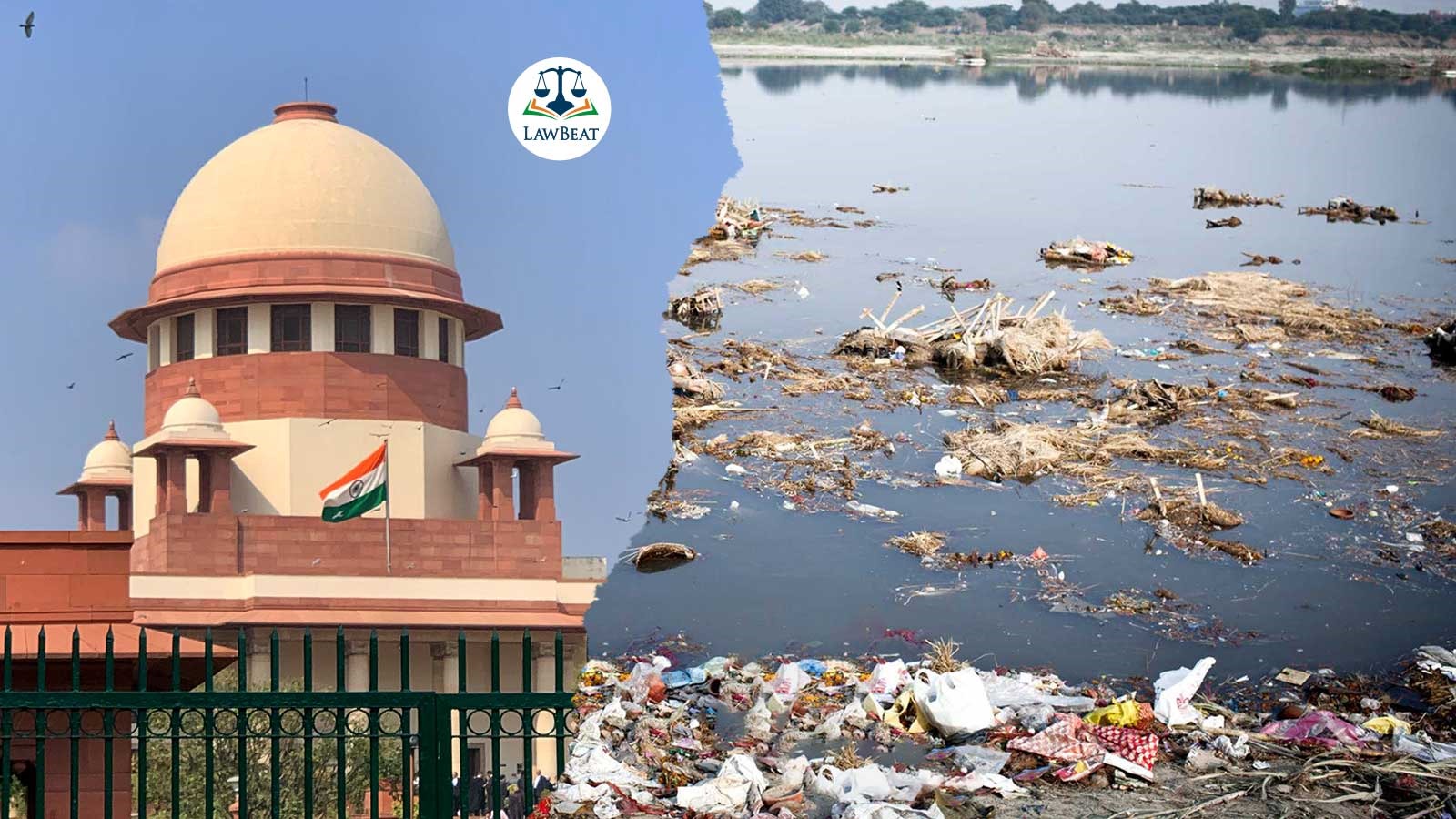Supreme Court Issues Notice on PIL Raising Alarm Regarding Illegal Constructions on River Floodplains and Catchments

The PIL asserts that protecting rivers is essential for upholding the right to life under Article 21 of the Constitution, urging the immediate notification of the pending River Conservation Zones (RCZ) regulation and stricter monitoring of encroachments
The Supreme Court, in a move to safeguard the nation’s rivers from environmental degradation, issued notices to various governmental bodies, including the Ministry of Environment, Forest & Climate Change, the Ministry of Jal Shakti, the Ministry of Earth Sciences, the Central Water Commission, and the Central Pollution Control Board (CPCB). A bench led by Chief Justice D.Y. Chandrachud directed the concerned ministries and authorities to respond within three weeks.
The notices were issued in response to a writ petition under Article 32 of the Constitution, filed by Dr. Ashok Kumar Raghav, a former IPS officer, who raised concerns about the escalating issue of unauthorized constructions and their detrimental impacts on the environment, ecology, and public health. The petition alleges that these unauthorized activities are causing widespread devastation, including frequent flooding and the collapse of critical infrastructure. It holds the Central Government—particularly the Ministry of Environment, Forest & Climate Change (MoEF&CC) and the Ministry of Jal Shakti—responsible for failing to regulate these practices under the Environment (Protection) Act, 1986.
The petition highlights the government’s delay in notifying the River Conservation Zone (RCZ) or River Regulation Zone (RRZ), which has been pending since 2015. It further raises alarms regarding unchecked encroachments that harm river ecosystems, obstruct groundwater recharge, and contribute to water scarcity, thereby threatening the nation’s water security and the survival of future generations.
The petitioner emphasised India’s severe water crisis, citing the 2018 NITI Aayog report, and noted that despite the 2012 National Water Policy’s emphasis on river protection, illegal constructions continue due to weak enforcement. The plea also highlighted recent infrastructure collapses during monsoons in states like Himachal Pradesh and Uttarakhand, which further expose the risks, urging the Supreme Court to direct the government to establish stricter regulations and enforce the River Conservation Zone (RCZ) notification. The petitioner argued that protecting rivers is vital to ensuring the right to life under Article 21 of the Constitution.
The PIL raises crucial questions about the State’s constitutional duty to protect water resources, asserting that the State must safeguard rivers, which are essential for drinking, irrigation, and livelihoods. It contends that the right to life under Article 21 includes access to safe water. The petitioner highlights the risks to health and livelihoods posed by ineffective water management and notes how unchecked illegal constructions threaten water security, impacting the right to trade under Article 19(1)(g). Citing the 2018 Composite Water Management Index, the PIL warns of severe water stress affecting 600 million people. It also points to legal violations, including breaches of the Water (Prevention and Control of Pollution) Act, 1974, and stresses the need for stronger implementation of existing policies.
The petition calls for the prompt notification of the pending River Conservation Zones (RCZ) regulation, stricter monitoring of encroachments, and the establishment of a permanent River Monitoring Committee to protect river ecosystems. The PIL further contends that illegal and unauthorized constructions, encroachments, and obstructions on riverbeds, floodplains, and catchment areas, including their tributaries, violate established principles of sustainable development, the Precautionary Principle, the Polluter Pays doctrine, and inter-generational equity.
The petitioner was represented by Advocate Akash Vashishtha, alongside Advocate-on-Record (AOR) Rishi Sehgal, and Advocate Midhun Aggarwal.
Cause Title: Dr. Ashok Kumar Raghav v Union of India
